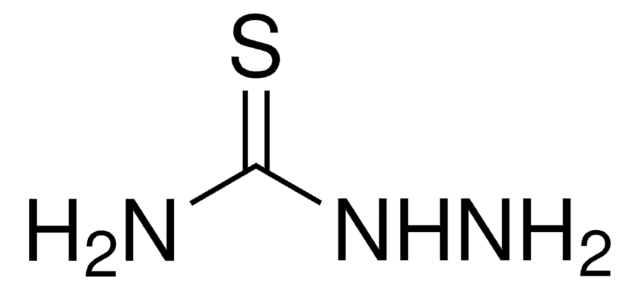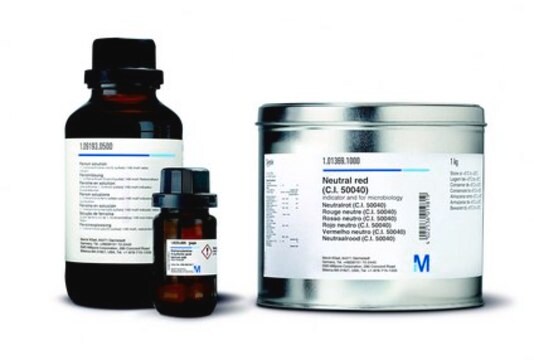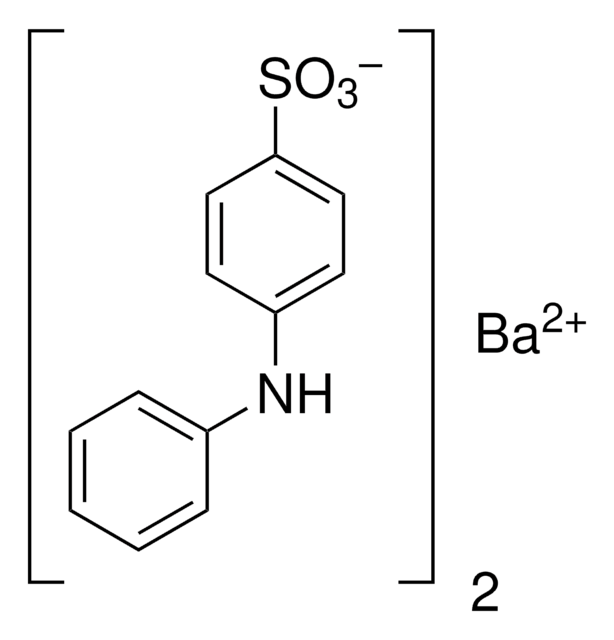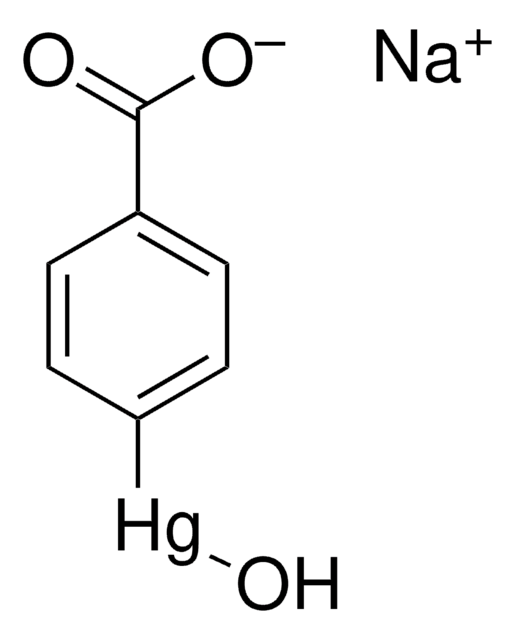P27127
Phenylmercuric acetate
97%
Synonym(s):
Phenylmercury acetate, Mercury phenyl acetate
About This Item
Recommended Products
Quality Level
Assay
97%
form
powder
mp
148-151 °C (lit.)
SMILES string
CC(=O)O[Hg]c1ccccc1
InChI
1S/C6H5.C2H4O2.Hg/c1-2-4-6-5-3-1;1-2(3)4;/h1-5H;1H3,(H,3,4);/q;;+1/p-1
InChI key
XEBWQGVWTUSTLN-UHFFFAOYSA-M
Looking for similar products? Visit Product Comparison Guide
Application
Signal Word
Danger
Hazard Statements
Precautionary Statements
Hazard Classifications
Acute Tox. 2 Oral - Aquatic Acute 1 - Aquatic Chronic 1 - Eye Dam. 1 - Skin Corr. 1B - STOT RE 1
Target Organs
Kidney,Central nervous system
Storage Class Code
6.1A - Combustible acute toxic Cat. 1 and 2 / very toxic hazardous materials
WGK
WGK 3
Flash Point(F)
Not applicable
Flash Point(C)
Not applicable
Personal Protective Equipment
Regulatory Listings
Regulatory Listings are mainly provided for chemical products. Only limited information can be provided here for non-chemical products. No entry means none of the components are listed. It is the user’s obligation to ensure the safe and legal use of the product.
PDSCL
Poisonous substance
PRTR
Class I Designated Chemical Substances
ISHL Indicated Name
Substances Subject to be Indicated Names
ISHL Notified Names
Substances Subject to be Notified Names
JAN Code
P27127-100G:4548173206097
P27127-BULK:
P27127-25G:4548173206103
P27127-VAR:
Choose from one of the most recent versions:
Already Own This Product?
Find documentation for the products that you have recently purchased in the Document Library.
Our team of scientists has experience in all areas of research including Life Science, Material Science, Chemical Synthesis, Chromatography, Analytical and many others.
Contact Technical Service












